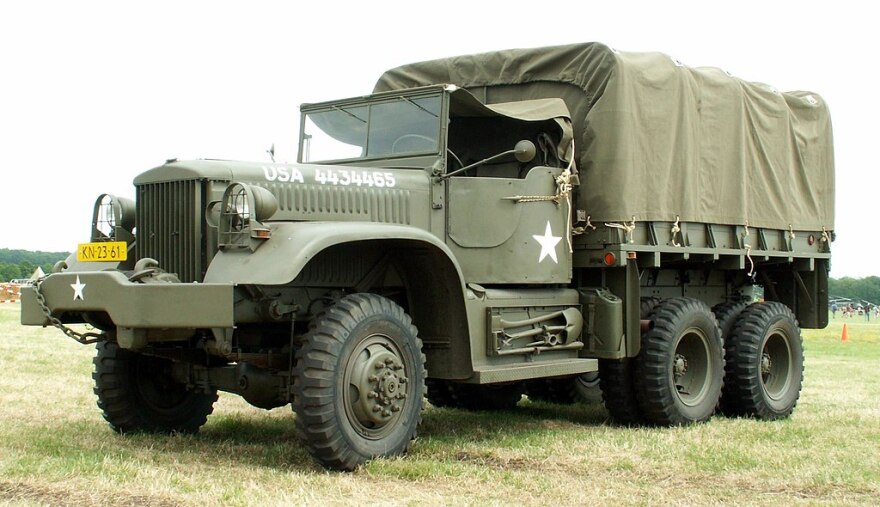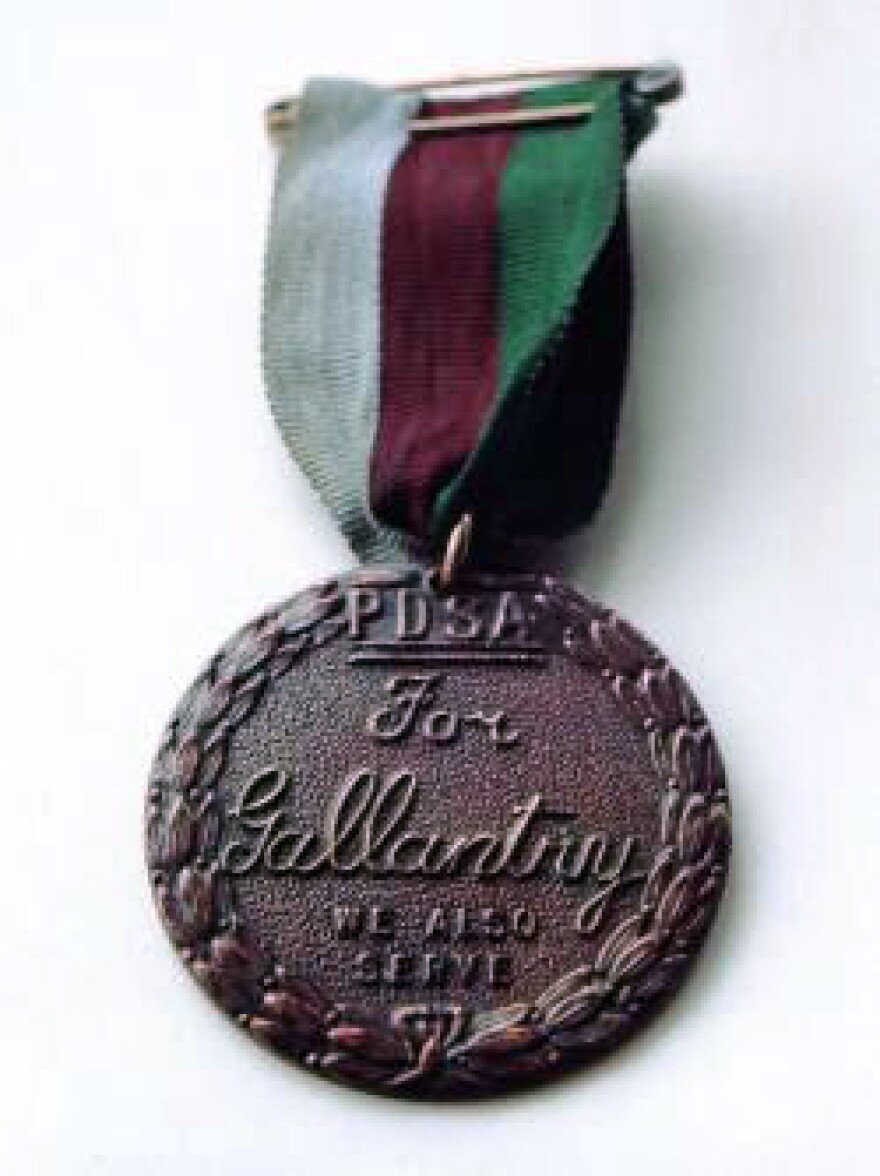Every year, the Carey Institute for Global Good in rural Albany County hosts journalists from around the globe through its Logan Nonfiction Program. Its latest residences wrapped just as the coronavirus pandemic took hold. WAMC’s Jesse King stopped by the campus in Rensselaerville, New York to speak with author Craig Nelson.
Craig Nelson says he primarily writes history books for “men to read on planes.” He’s got a total of eight titles under his belt, including the 2009 New York Times bestseller Rocket Men and an award-winning biography on colonial activist and philosopher Thomas Paine. Now knee-deep in research for his next book, Nelson’s time at the Carey Institute was spent looking at the “secret weapons” that helped the Allies win World War II.

“We used to think it was the decisions of the generals and the admirals who won World War II — but now we think it has to do with stuff: the fact that Americans produced more tanks and guns and boats and ships and planes and machine guns and ammunition and all of those things, than all the other nations combined," says Nelson. "So the ‘secret weapons’ are the people who remained behind in the continental United States, the war workers who made all these things.”
Put another way: Nelson says the Germans and Japanese went into World War II thinking they would win by “national spirit” — and the U.S. entered in 1941 believing in the power of trucks. He says we gave over 300,000 trucks to Russia alone, and while he concedes American machinery didn’t always stand up well against the Germans’ — at the end of the day, mass production gave the Allies the upper hand.
“The Germans had the best tanks — but if anything happened to those tanks, they had to take them off the field and bring specialists in to repair them. And Americans had tanks that were like model-Ts basically, and anybody could fix them. So their tanks were constantly being back in service, whereas the German tanks, or the German planes or whatever, were being put out of service," Nelson explains. "And you see that happening again and again and again.”
This is actually Nelson’s third book on World War II, with separate titles dedicated to Pearl Harbor and the U.S. bombings on Tokyo soon after. He’s been working on the new book for about three years, digging through history journals and conducting interviews with the very people who kept assembly lines running in the 1940s.
And he’s learning new things every day. Nelson says the U.S. began rationing sugar, meat, tires, and other supplies to save “stuff” for the war effort in 1942 — and as a result, a quarter of the country’s commercial transactions moved to the black market. As the government sought to rapidly expand its military, Nelson says it looked in all types of places.
“Today I found out that the United States Army tried to draft Roy Rogers — he was a big cowboy star, big cowboy hero of this time — and he had 200 prized pigeons. And the U.S. Army drafted the pigeons," he smiles. "They would send paratroopers behind enemy lines, and they would attach pigeons in little sleeves to their uniform[s] because they couldn’t use radio. So they had various messages they could send back home with the pigeon. And then I found that there was an award that the British had for valorous animals in wartime service. And one cat got it, and a couple of dogs, and some horses — and 32 pigeons.”

Mostly, Nelson says he’s learning how World War II completely transformed the U.S. military and American life. If you’ve taken a history class, it’s no secret the war effort helped pull us out of the Great Depression, but Nelson says many people miss the sheer size of that change. He says the U.S. Army was 14th in the world behind Belgium prior to Pearl Harbor — the first peacetime draft in 1940 may have been one of a few reasons the military wasn’t left crippled by the attack.
As for the nation’s soldiers, Nelson says they often returned from Europe and the Pacific to find a completely different economy.
“One great story is that a guy is drafted right at the beginning of the war. He lives in a one-room house with a family of eight, and they’re really struggling. So two years later he’s getting out of the service and coming home, and he tells them he’s coming home and they go, ‘Oh, well, we have to coordinate our vacations with you!’" he laughs. "Because the whole economy has so dramatically changed that now all of them are making money, and they all live in really nice houses. And he’s coming back to his own room in his own part of the house, and everyone has to coordinate their vacations to see him.”
Just as the soldiers longed to return home, Nelson imagines many of the nation’s union and assembly workers regretted not being on the front lines. He hopes the new book, tentatively titled The Secret Weapons and set for release in 2021, sheds light on their contribution.
“It takes all sorts of people to make a profound change in history. You may think you’re not doing anything, or that your mom and dad didn’t really do anything — but if you look closer you can see that maybe they really did do something," says Nelson.
This piece is part of a series on the Carey Institute's Logan Nonfiction Program, which has supported over 150 journalists since it began in 2015. You can read more on the latest fellows below.






